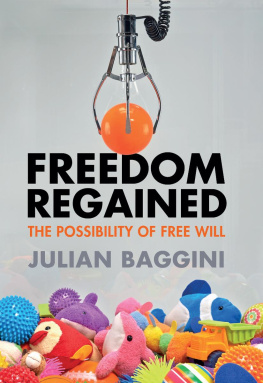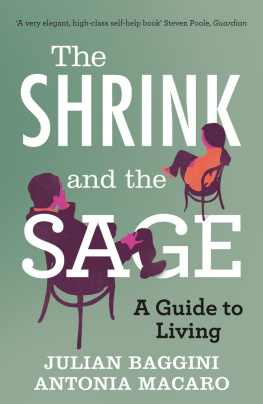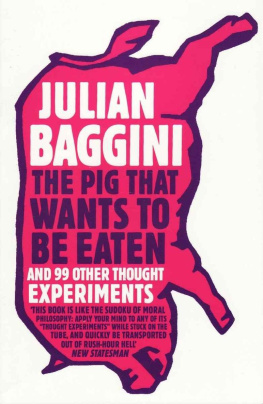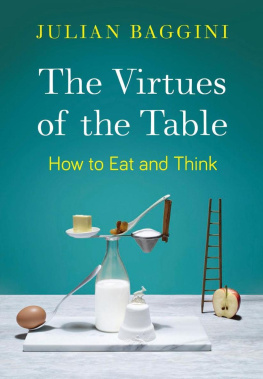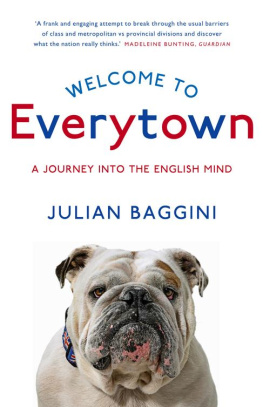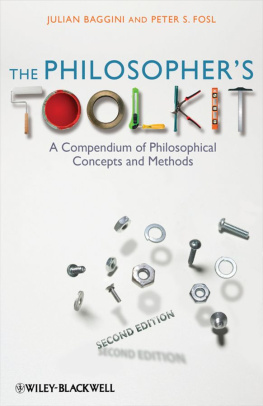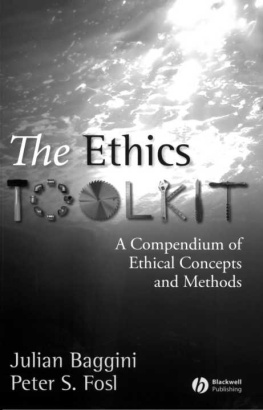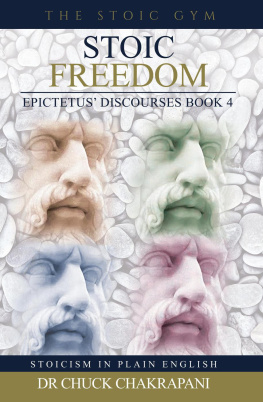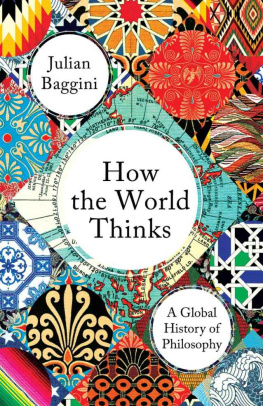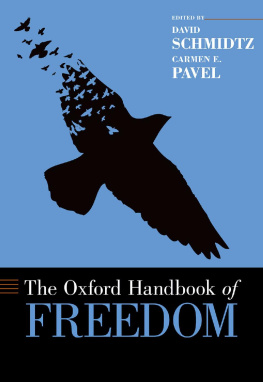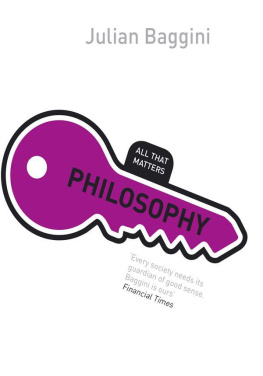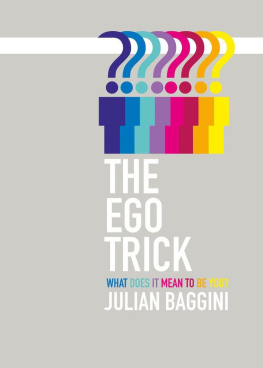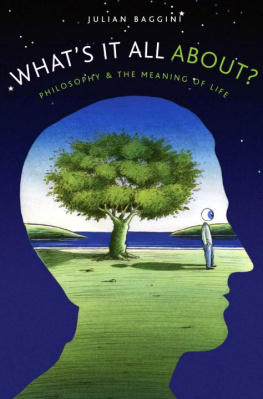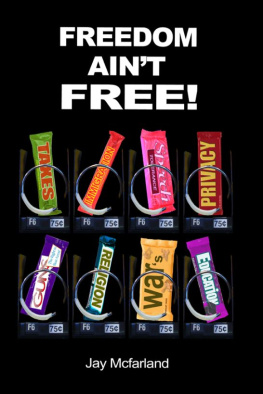Introduction
In the shadow of every life led are all our potential lives not led. Innumerable choices mark the forks in the road, after which there is no turning back: leave school at sixteen or apply for university; stay with a long-term partner or go solo; become a parent or remain childless; accept a job offer or stick with the devil you know; take a train or bus when, unbeknown to you, one of them will end the day a mangled wreck. Right now, you could have chosen to do many things other than sit down to read these words, and if you dont read something interesting pretty soon you may well pick up a different book, go for a walk or switch on the television.
We make countless choices every day, big and small. Even if you are a creature of habit, you are not compelled always to repeat yourself. You may well start each morning with a strong coffee, but at any point you might decide to have a tea instead. You cant do just anything, of course. You cant decide to repeal the Geneva Convention, or jump to the moon. But even excluding the incredibly difficult and the physically impossible, there is always a range of actions that you could choose to do. Within certain limits, you are free to do what you want.
This would appear to be an obvious, even banal, fact about
More recently, Stephen Hawking wrote: The initial configuration of the universe may have been chosen by God, or it may itself have been determined by the laws of science. In either case, it would seem that everything in the universe would then be determined by evolution according to the laws of science, so it is difficult to see how we can be masters of our fate.
In recent years, views like these have become increasingly mainstream. Work in neuroscience has put wind into the sails of those who would deny free will. The springs of our actions do not appear to be our conscious thoughts, desires and intentions but unconscious processes in the brain, ones which often set actions in process before we are even aware of anything. As neuroscientist Sam Harris, one of the most strident recent deniers of free will, sums it up: The popular conception of free will seems to rest on two assumptions: (1) Since neither of these assumptions appears to stand up to scientific scrutiny, the game would seem to be over for free will or at least, the popular conception of it.
Free will is an illusion has become such a common claim that it is often accompanied by a knowing of course. Proponents of this view concede that the illusion of freedom is so powerful that denying it usually makes little or no difference to how we act in daily life. Everyone feels as though she has free will, they say, even if she knows on reflection that she does not. But this new orthodoxy does not leave the world exactly as it is. Most importantly, it challenges our notions of responsibility. If we accept that all our actions are the inevitable result of causes over which we have no control, then we cannot in good faith continue to hold people morally responsible for their actions. If free will goes, it seems blame and responsibility must go too, and with them the foundations of law and morality. Whenever there is a murder, for example, there is almost always a defence that the killer was himself the victim of forces beyond his control. After James Huberty shot and killed twenty-one people in San Diego in 1984, for example, it was claimed that his rage was the result of monosodium glutamate in McDonalds food and poisoning by lead and cadmium in fumes inhaled while working as a welder.
So is the game really up for free will? I and many other, greater minds dont think so. But at the same time, it is true that the common sense notion of free will is not fit for purpose. It rests on a naive and simplistic assumption that we can rise above our biology and our history to make choices in a condition of unconstrained freedom. The challenges to free will need to be met not by rejecting them wholesale, but by thinking more carefully about what it truly means to be free, rather than what we simply assume it to mean.
Many governments have also embraced nudge theory, which focuses on the ways in which institutions and processes can be designed to make people do the right thing by tapping into unconscious reactions rather than conscious thoughts and deliberations. This involves numerous small-scale manipulations, which bypass conscious control. For example, telling people that nine out of ten people pay their tax on time makes them more likely to pay on time themselves simply because human beings are strongly influenced by what those around them are doing, not because they consciously choose to change their behaviour on the basis of this information.
All this has left us floundering. On the one hand, there is a recognition that we need to encourage a sense of responsibility so that people exercise their freedom. On the other, there is a steady trickle of information suggesting that we are hapless slaves to our genes, our childhood and our environment, and that free will is just a fantasy. We are being pulled in opposing directions, resulting in muddled thinking and contradictory policies.
Fortunately, I think we have at our disposal all the tools we need to rehabilitate a reformed free will.
Free will is one of the most discussed, debated and written-about issues in the history of philosophy. The good news is that that means all the significant landmarks have been discovered, described and analysed in great detail. The bad news is that the maps that plot them are the messy result of the debates tortuous history and are useful only to academics negotiating their specialised domains. My aim is not so much to claim new discoveries but to redraw the map to highlight the landmarks and pathways that are most helpful for those seeking the way today.
The path Ive plotted is divided into five stages. I start with a brief and selective history of the challenges to free will in western philosophy to establish the core perennial issues. This provides the necessary theoretical background for an examination of the major threats to free will that contemporary science is said to pose. I then go back to basics and present a view of what freedom means that starts with human experience, rather than the standard definitions that have come to fill textbooks. Next, I consider cases where free will is compromised, to show how it is not a question of free will, yes or no, but what degrees of freedom we really have. Finally, I bring the arguments together with a positive account of the kind of free will worth wanting.
Thought experiments can often be very useful when making philosophical arguments, and I use some in this book. But I have increasingly come to believe that it is foolish to rely on them when there are real-world examples that are more illuminating. In the case of free will, we have several living, breathing characters that we can look at when considering the limits of and threats to freedom. The four I will focus on are the artist and the dissident as paradigms of freedom, and the addict and the psychopath as exemplars of how freedom can be diminished.

